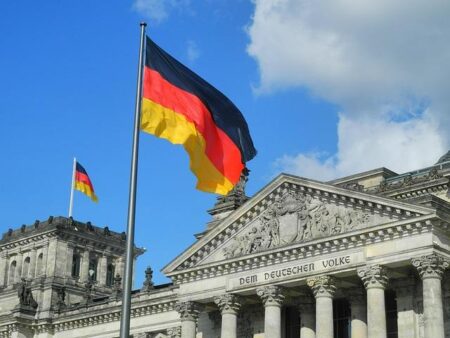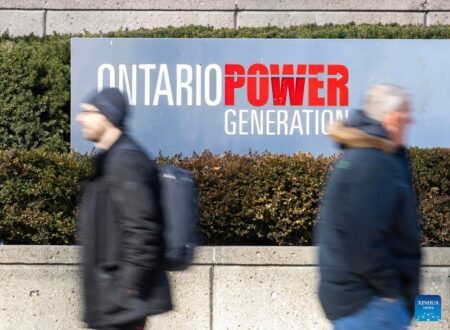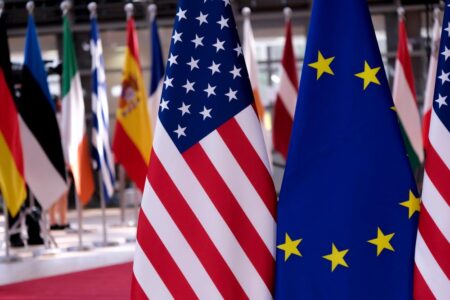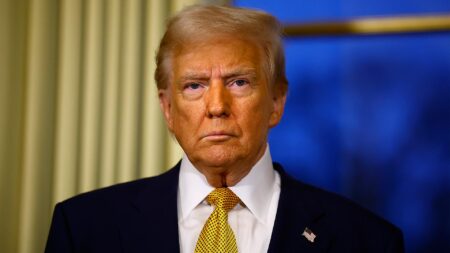Subscribe to Updates
Get the latest creative news from FooBar about art, design and business.
Browsing: government policy
Germany’s Bundestag has approved a significant reform of the “debt brake,” a constitutional rule limiting government borrowing. This measure aims to provide greater fiscal flexibility for investment while maintaining economic stability amid global challenges.
Brazil’s Finance Minister has revised the estimated costs of a proposed tax exemption, lowering it to $4.75 billion. This adjustment aims to alleviate concerns over fiscal impact while stimulating economic growth, according to Reuters Canada.
The UK economy showed signs of stagnation in January, highlighting the growing challenges for Shadow Chancellor Rachel Reeves. This downturn raises critical questions about the government’s economic strategy and its impact on future growth.
In a significant policy shift, German leaders have reached an agreement to increase spending on defense and climate initiatives. This move reflects a commitment to bolster national security and address pressing environmental challenges.
Canada is reevaluating a multi-billion dollar defense deal with the United States amid rising security concerns and changing geopolitical dynamics. Officials aim to assess the implications for national defense and relations with key allies.
The European Union has initiated legal action against Spain, accusing the country of implementing discriminatory tax policies that unfairly target non-residents. This move highlights ongoing tensions regarding tax equity within the bloc.
Ontario has announced a 25% tax increase on electricity exports to the U.S., a strategic move in response to escalating trade tensions fueled by Trump’s trade policies. This decision aims to protect local consumers and stabilize the province’s energy market.
In a stark reversal from his optimistic forecasts, former President Trump now warns Americans of impending economic turbulence. As inflation rises and market volatility persists, many are questioning the sustainability of his earlier promises of a robust economic boom.
Canada has announced plans to ease sanctions on Syria, signaling a potential shift in foreign policy. The move coincides with the appointment of a new ambassador, aiming to enhance diplomatic engagement amid ongoing regional challenges.
The Chair of the UK’s Payment Systems Regulator has described the potential abolition of certain regulations as a “pragmatic next step.” This move aims to streamline payment processes and enhance innovation within the sector, signaling a shift towards modernized financial systems.
Starting January 2024, nationals of Trinidad and Tobago will require a visa to enter the United Kingdom. This change, as reported by immigration firm Fragomen, aims to enhance border security and regulate immigration flows more effectively.
France is consolidating various institutions to better support its artisans, streamlining resources and funding to enhance craftsmanship. This strategic merger aims to foster creativity and economic sustainability in the artisanal sector, bolstering national heritage.
In an exclusive interview, Gareth Thomas, Parliamentary Under Secretary of State for Entrepreneurs, discusses the government’s strategies for fostering innovation and growth in the UK economy, emphasizing support for startups and small businesses as key drivers for recovery.
Spain has approved a groundbreaking bill aimed at regulating AI-generated content. This legislation seeks to address concerns over misinformation and copyright issues, ensuring responsible use of artificial intelligence in media. The move reflects growing global scrutiny of AI technology.
Brazil has proposed a blockchain-based payment system for the BRICS nations, aiming to enhance trade efficiency and reduce reliance on traditional financial systems. This initiative could revolutionize cross-border transactions among member countries.
U.S. relations with China continue to evolve amid geopolitical tensions and economic interdependence. The Department of State emphasizes dialogue, addressing trade disparities, human rights concerns, and climate cooperation as pivotal areas for future engagement.
In a significant shift, President Trump has reversed his threat to impose new tariffs on Canada following Ontario’s decision to rescind controversial electricity charges. This move aims to enhance trade relations and ease tensions between the two nations.
The USDA is proposing significant funding cuts to food banks and school nutrition programs, raising concerns about food security nationwide. Stakeholders urge policymakers to reconsider these reductions, as they may disproportionately impact vulnerable communities.
Italy’s escalating bond market tensions are shaping Prime Minister Giorgia Meloni’s strategies across various sectors, from defense to banking. As yields rise, Meloni confronts a delicate balancing act between fiscal responsibility and political stability.
Former RBI Deputy Governor has suggested that Trump’s tariffs on India could offer unexpected opportunities for local industries to strengthen and innovate. The measures, while challenging in the short term, may ultimately lead to greater self-reliance.























